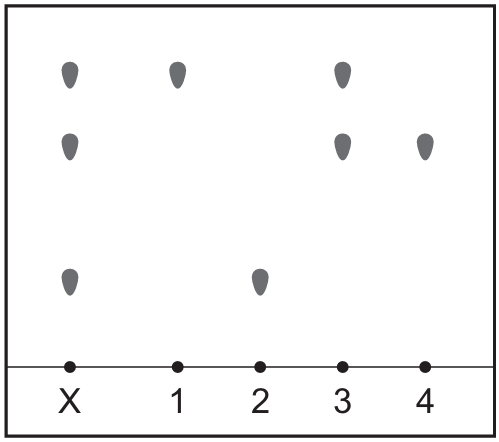Dyes are coloured substances.
The chromatogram of substance X and four different dyes, 1, 2, 3 and 4, is shown.

Substance X contains only two of the dyes 1, 2, 3 and 4.
Which two dyes are present in substance X?
A) 1 and 2 B) 1 and 4 C) 2 and 3 D) 3 and 4
▶️ Answer/Explanation
Ans: C
In chromatography, a substance that contains other dyes will show spots that align with the dyes it contains.
From the description (though we can’t see the actual chromatogram), we can deduce that substance X has spots that match the positions of dyes 2 and 3.
Key points about chromatography interpretation:
- Each component in a mixture will travel up the chromatography paper to the same extent as it would if it were pure
- The number of spots in the mixture’s chromatogram indicates how many different dyes it contains
- A spot in the mixture that aligns with a spot from a known dye indicates that dye is present in the mixture
Therefore, since substance X contains only two dyes and they match dyes 2 and 3, option C is correct.
Question
Which dye on the chromatogram is a pure substance?

Answer/Explanation
Ans:
A
Question
Which method of separation is used to separate a soluble solid from its solution?
A chromatography
B condensation
C crystallisation
D filtration
▶️Answer/Explanation
Ans:C
Question
In the chromatography experiment shown, which label represents the solvent front?

▶️Answer/Explanation
Ans:A
